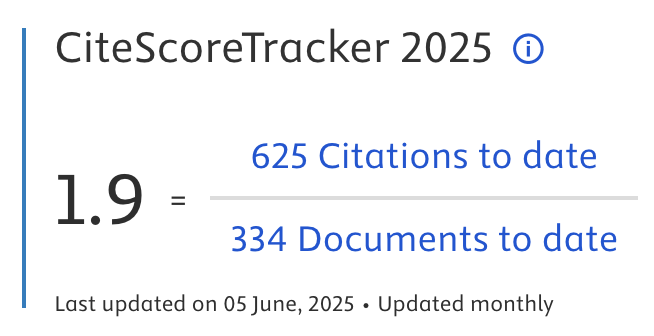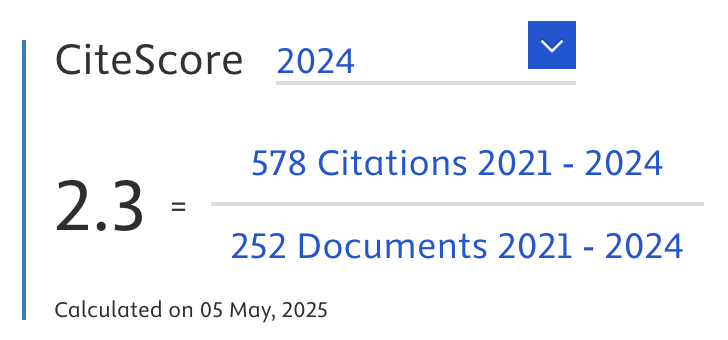The Impact of Industrial Security Risk Management on Decision-Making in SMEs: A Confirmatory Factor Analysis Approach
Abstract
This study focuses on the importance of industrial risk management for small and medium-sized enterprises (SMEs) in Algeria, particularly given the administrative, economic, and financial challenges they face, as well as their limited experience in this field. Risk management serves as a strategic tool that aids institutions in achieving safety and sustainability by identifying potential risks that may lead to industrial disasters, such as chemical incidents and technical malfunctions, then analyzing, assessing, and responding to these risks in ways that minimize their impact on the safety of individuals, property, and the environment. The study aims to analyze the impact of risk management on SMEs' ability to make accurate and timely decisions during critical moments while fostering a culture of safety and proactive risk handling. To achieve these objectives, a survey was conducted on a sample of 390 Algerian industrial SMEs. The study employed the Confirmatory Factor Analysis methodology (CB-SEM) to analyze data from these SMEs, which helped in identifying core risk management processes such as risk description, analysis, and conclusion, and evaluating their effectiveness in supporting decision-making. The findings indicate that the impact of the risk description process on decision-making is positive but weak at 14.7%, while the impact of the risk analysis process on decision-making is also positive and weak at 18.9%. However, the effect of the risk conclusion process on decision-making was positive and moderate, at 64.8%. The results further reveal that SMEs that adopt a comprehensive and sustainable approach to risk management have a greater ability to manage disasters and ensure operational safety. The study highlights the importance of regularly reviewing safety protocols, providing training and simulations for employees, improving risk response strategies, and enhancing organizational performance. However, it was observed that some SMEs lack reliance on modern systems for risk avoidance. The study recommends the importance of allocating an independent budget to address potential risks, activating proactive systems for risk prediction, and employing internal and external experts for risk analysis. The study recommends that SMEs focus on developing mechanisms for describing and analyzing risks and collaborating with specialized entities to implement modern systems that support safety and sustainability. Additionally, it advises organizations to raise employees' awareness and provide training on risk handling to enhance the effectiveness of risk management and ensure business continuity.
Article Metrics
Abstract: 83 Viewers PDF: 47 ViewersKeywords
Full Text:
PDFRefbacks
- There are currently no refbacks.

Journal of Applied Data Sciences
| ISSN | : | 2723-6471 (Online) |
| Collaborated with | : | Computer Science and Systems Information Technology, King Abdulaziz University, Kingdom of Saudi Arabia. |
| Publisher | : | Bright Publisher |
| Website | : | http://bright-journal.org/JADS |
| : | taqwa@amikompurwokerto.ac.id (principal contact) | |
| support@bright-journal.org (technical issues) |
 This work is licensed under a Creative Commons Attribution-ShareAlike 4.0
This work is licensed under a Creative Commons Attribution-ShareAlike 4.0





.png)